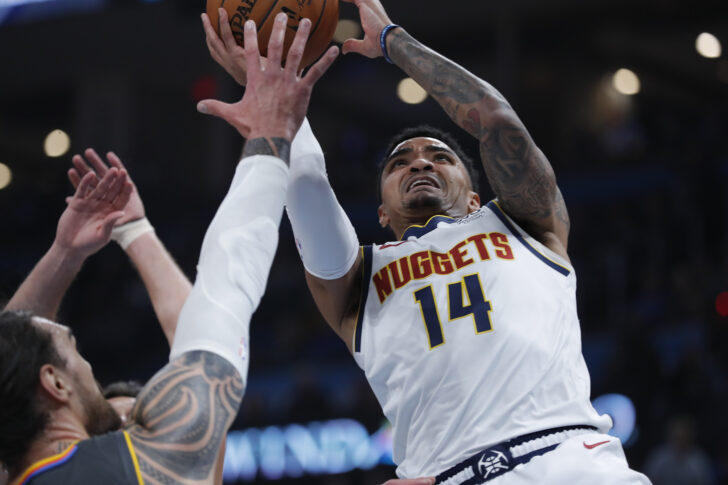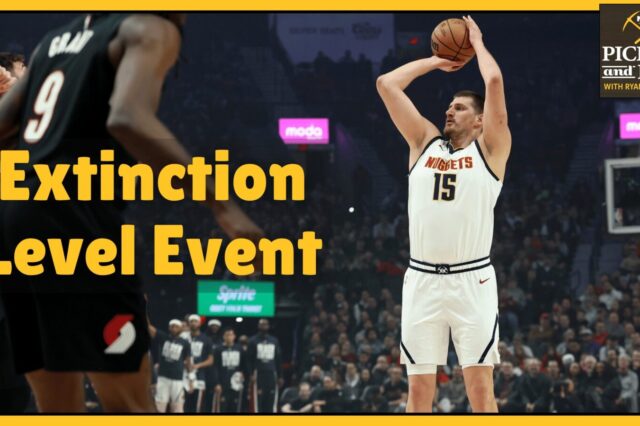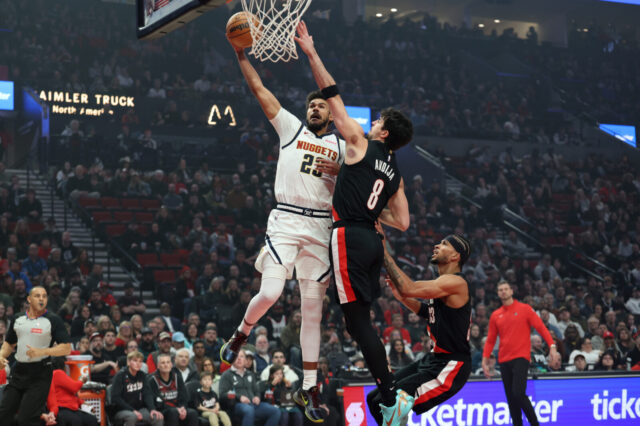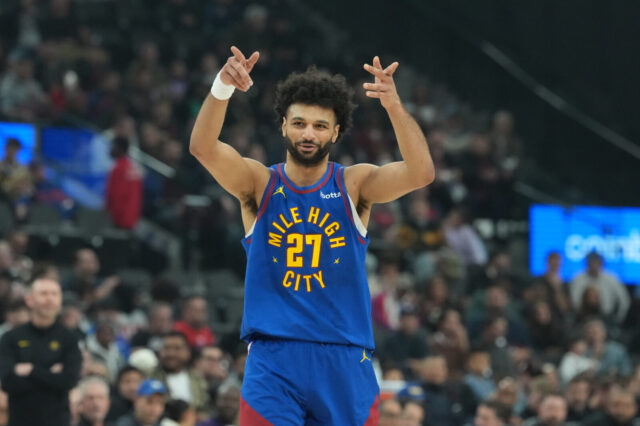Just 36 hours before taking on the Oklahoma City Thunder in Oklahoma, Nuggets head coach Michael Malone spoke to the media about coming out of the All-Star break fast and prepared, but despite those hopes, Denver fell short of beating the surging Thunder to begin their road to the postseason.
Nikola Jokic played incredibly well, Jamal Murray battled through another injury scare, Denver kept the game close, and Denver was finally healthy, but they ultimately did not do enough to get the win.
For the Nuggets, their first game back from the All-Star break was sloppy which led to the loss and with that, here are the good, great and ugly from Denver’s 113-101 loss.
Good – Reinforcements arrive
For essentially every game since the start of 2020, the Nuggets have been far from full strength, but on Friday night for Denver’s first game since the conclusion of the All-Star break, they finally had a clean injury report.
Since the first day of January, Paul Millsap has missed 16 games, Mason Plumlee missed 12 games, Jamal Murray missed 10 games, Michael Porter Jr. missed six games, Will Barton III missed four games, and even Jerami Grant missed a game.
But on Friday night in Oklahoma City, Malone had all of his players active and ready to go.
Millsap and Barton returned to the starting lineup for the first time since their respective injuries, Michael Porter Jr. and Mason Plumlee slid back into their roles off the bench, and Malone used what is expected to be his 10-man rotation throughout the night.
While the production from Denver’s returning players left a lot to be desired, just having them available was a major step in the right direction for a Nuggets team looking to tighten things up as they get closer and closer to the postseason.
Great – Nikola Jokic continues to dominate
25.3 points, 11 rebounds, 8.1 assists and 1.8 steals per game while shooting 55.3% from the field.
Those are the numbers that Nikola Jokic is averaging over his last 15 games as he continues to dominate whoever stands in front of him and his battle with Steven Adams on Friday night was just more of the same.
Against Adams as his primary defender — who is far from a slouch and one of the better defenders at the center position in basketball — Jokic went to work as he racked up 32 points while missing only three shots all night long. He finished 12-15 from the field, 7-7 from the foul line, and also hit one of his two attempted 3-pointers. Oh, and as Jokic always does, he managed to impact the game in multiple ways beyond just scoring. He had seven rebounds, five assists as well as a steal and a block with just one turnover working against him.
After a slow start to the year, Jokic has turned up his play to a level that has only been seen during his 14 playoff games last year. Even with that lull to begin the season, Jokic is the only player averaging better than 20 points, 10 rebounds and six assists per game. If you lower the assist requirement to five dimes, the only other player matching those numbers is Most Valuable Player front-runner Giannis Antetokounmpo.
At the time of this writing, Jokic is averaging 20.8 points, 10.2 rebounds and 6.9 assists per contest and he is doing so without the rest of his teammates playing at their best. He has simply been outstanding and his play against the Thunder was more evidence of exactly that.
Ugly – Gary Harris still looking for an offensive rhythm
The disappearance of Gary Harris’ offensive skills has quickly evolved from minor concern to a cold case that may never be solved.
After being one of the most efficient scoring guards in the entirety of the NBA during the 2016-17 season, Harris’ fall from grace has been as brutal as it has been abrupt.
Gary Harris’ shooting splits by season:
16-17: 50.2 FG%, 42 3ptFG%
17-18: 48.5 FG%, 39.6 3ptFG%
18-19: 42.4 FG%, 33.9 3ptFG%
19-20: 39.6 FG%, 29.9 3ptFG%What a drastic fall.
— T.J. McBride (@TJMcBrideNBA) February 22, 2020
During that 2016-17 season, Harris shot a blistering 50.2% from the field and 42% from three-point range which vaulted him all the way into the upper echelon of shooting guards, but ever since that season, Harris’ numbers have slowly declined each season. Now Harris is just factually one of the most inefficient offensive players in the league.
Through 46 games this season, Harris’ shooting splits are the worst of his career not including his rookie season. He is shooting 39.6% from the field and just 29.9% from three-point range. He is one of only two players (Justice Winslow) in the entire National Basketball Association to play 30 minutes or more per game while shooting under 40% from the field and under 30% from three-point range. To be clear, this isn’t even fair to Winslow, who has only played in 11 games this season.
Essentially, Gary Harris is the most ineffective offensive player in basketball for the role he has been given. There is not a single player who has played more than 11 games and at least 30 minutes a night that is shooting as badly as Harris is.
For now, the questions swirling around Harris’ play will not cease until his shot starts to fall once again, but it is getting closer and closer to the time that Malone will have to make a decision about Harris’ role in a playoff setting and if he is the best option Denver has to start at shooting guard.



